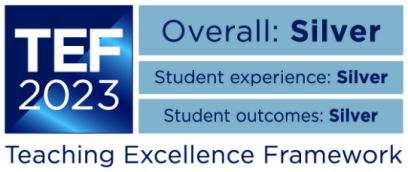FdA Early Childhood Studies

The FdA Early Childhood Studies programme is current and responsive to the needs of the sector focusing on ages 0 to eight years. Interwoven with threads of theory, practice and professional development, this course will provide you with a solid foundation on which to scaffold your future, developing opportunities to access multiple pathways in the sector.
- Level
- 5
- Entry Point
- Sep 2026
- Duration
- Full Time, 2 years
- Venue
- Norfolk House campus
- UCAS Course Code
- L520
Reasons to study
this course
You will develop your skills through teaching and learning strategies which include lectures, group work, presentations, practical sessions, work-based learning, projects and seminars - providing you with opportunities for personalised support, tailored discussions and with the benefits of small groups.
A minimum of 700 hours of professional practice is a requirement of this programme. This can be either voluntary or paid and we can support you to find a suitable placement. We have strong partnerships with students' workplaces, which allows you to embed theory into practice, while developing your professional and employability skills.
Alex Guy - Course Leader FdA Early Childhood Studies
My name is Alex and I am the course leader for FdA Early Childhood Studies. I have completed a Diploma in Education in Training, and more recently, I have been awarded Senior Fellowship by Advance HE; this is provided to individuals that have demonstrated a comprehensive understanding and effective practice that provides a basis from which they lead or influence the learning and teaching practices of others. My current role is a Higher Education Curriculum Lead, where I have responsibility for our staff and quality of provision across a range of programmes. I have overseen provision in Trainee Nursing Associates, Health Studies, Mental Health Practice, Social Work, Youth Work, Psychology with Sociology, English, Childhood and Youth Studies, Early Childhood Studies and Additional Needs and Disabilities.
Contact course leaderWhere will this
course take you?
Previous students have pursued a variety of pathways upon competition of the FdA. The structure of the course, being delivered on one day a week, in combination with the required element of practice, provides you with a sound platform of skills, knowledge and behaviours that springboards you into a variety of opportunities in the sector.
Many FdA students progress onto the BA Top-Up Childhood and Youth Studies, in order to gain a full BA (Hons) degree with most students then applying to teacher training with a specialism in early years. Some students have used the course as a foundation to gain qualifications and experience with the view of continuing their studies in the fields of: play therapy, speech and language therapy, children’s nursing and educational psychology and counselling. Other students have gained full time employment within the sector across a range of areas including, but not limited to positions such as, nursery room leaders, nursery managers, specialists teaching assistants and higher-level teaching assistants, working for Norfolk County Council in roles such as supporting migrant families with young children, family support workers and outreach services.
Course structure
This course is studied full time over two years. The programme is delivered one day a week.
Modules
Level 4 modules
Professional and Academic Skills Compulsory
This module aims to provide a framework of professional and academic skills at undergraduate level, to promote your recognition of the value of research, critical analysis and reporting in the context of your programme specialism and to aid in the identification and development of a developmental approach to learning and to the professional skills required for employment.
Assessment: Group presentation / reflective journal
Professional practice and policy Compulsory
The early childhood sector is sensitive to change, and the sector is affected by political, environmental, social, technological, economic and legal (PESTLE) factors. The purpose of this module is to explore the professional competencies required by the practitioner working within early childhood settings.
You will explore key debates and trends within early childhood and examine the influence of policy and practice initiatives. You will develop a foundational knowledge of the sector in which you are practising, or aim to practice in.
The module will examine and explore the professional standards and expectations, whilst leading you to create a portfolio evidencing your development of these skills required for the sector.
Assessment types: Placement visit and reflection / portfolio
The Developing child – Conception to eight years Compulsory
This module will enable you to develop knowledge and understanding of the major traditional and contemporary theories, which underpin children’s holistic learning and development from conception to eight years.
You will be given the opportunity to undertake observations of a child using appropriate observation methods. You will be encouraged to evaluate the effectiveness of the methods undertaken and explore the ethical and practical considerations, strengths and potential limitations. You will present strategies to support children’s development making clear links to relevant curricula documentation.
The module includes making links between the observations and theoretical perspectives, which will support subsequent modules.
Assessment type: Report
The Foundations of Childhood Core
This module explores the key ideas and debates surrounding children and childhood from sociological, cultural and historical perspectives. You will examine how the social construction of childhood has evolved over time and across cultures to further your understanding and knowledge of children’s experiences.
In addition, you will examine and challenge, where appropriate, their own preconceived ideas, attitudes and values about childhood critically debating societal values and beliefs.
The module further aims to encourage you to look beyond the contemporary Western model of childhood towards the plurality of childhood experiences across time and space. Drawing on academic research, theories, policies and legislation learners will discuss issues surrounding ‘the child’ and ‘childhood’ including children’s rights, poverty, family and crime and punishment.
Assessment type: Poster presentation
The Science of Play Compulsory
This module aims to develop your understanding of the importance of play for children’s holistic development. You will explore historical, current and international perspectives of play, whilst considering how these both support and possibly contradict existing statutory and non-statutory guidance, policies and expectations within settings.
In addition, you shall begin to explore the neuroscience behind play; looking at why the brain matters and developing your skills, as practitioners, to confidently explain the benefits of play for children, linked to the neuroscience behind it.
These two elements will strengthen your understanding of best practice within early childhood, allowing students to embed knowledge of theory into practice, whilst critically reflecting, to further expand and develop how to best support each child’s individual needs.
Assessment type: Essay / presentation
Understanding Additional Needs Compulsory
This module is designed to allow you to further your knowledge and understanding of how best to meet the needs of children with additional needs when working in early childhood.
There will be a focus on defining what “additional needs” means and how practice can be adapted to best meet the needs of different children. There will be a consideration of special needs/special educational needs, with additional consideration given to other needs including but not limited to children in care, refugees, English as an additional language, health conditions, attachment disorder/trauma.
You will explore the concept of inclusion and how this differs from integration, and the complexities of making this a success in early childhood. Diagnosis will be considered alongside current legislation and guidance and how effective this is in terms of meeting the needs of individual children and practicalities of putting this into practice.
You will be encouraged to explore a variety of strategies to differentiate their practice to support learning and development. You will also explore the importance of working effectively as part of a multi-agency team, in order to best meet individual needs.
Assessment type: Essay
Level 5 modules
Developing Professional Practice Compulsory
It is crucial that you have self-awareness and knowledge of professionalism and professional practice. This module aims to develop these skills highlighting the importance of effective communication and, the ability to work as part of a team.
You will critically examine the effectiveness of leadership and management within your settings in order to promote best practice, in turn positively impacting outcomes for all children.
As part of the portfolio, you will identify potential career paths and professional development opportunities. You will reflect upon your own employability skills and, plan for their career pathways, in line with sector standards.
Assessment type: Portfolio / placement visit
Early Childhood Pedagogy Compulsory
In this module, you will explore the main pedagogical approaches and their impact upon children’s holistic development. You will have the opportunity to reflect upon your own pedagogy, whilst considering how societal norms or government policy may influence those choices.
You will explore the importance of knowing each child as an individual and how strengthening this understanding will positively inform the practitioner’s ability to plan, create and deliver a resource, for a chosen child’s identified needs.
You will explore enabling environments; inclusion, reflection and pedagogy, whilst building upon knowledge of the child’s brain and the importance of nurturing it, to positively support children's holistic development.
Assessment type: Essay / exhibition
Early Life Transitions Compulsory
All children experience change in various forms throughout their early life. This module aims to equip you with the necessary knowledge, understanding and empathetic approaches required to best support children's holistic development during these times.
You will understand that children do not function in isolation from family or community and so, will consider the impact of transitions from a range of ecological spheres. You will draw on a range of frameworks including; anthropology, educational theory, creativity, philosophy, and psychology as well as newly emerging approaches and paradigms, to critically examine the impact of transition and how it can be best supported.
A range of transitions will be identified and examined including but not limited to; starting in a setting, room/key stage moves, birth of a sibling, bereavement, separation/divorce, immigration/relocation.
Assessment type: Essay
Promoting Holistic Health in Early Childhood Compulsory
Early years practitioners need to have a good understanding of all aspects relating to maintaining and encouraging children’s health and wellbeing from conception to age eight. You will explore prenatal factors as well as considerations of social determiners of health and how these impact on the lived experiences of babies and children.
This includes, not only an awareness of both physical and mental health of the individual child but also the family and how these factors can impact on development in all areas.
The importance of multi-disciplinary approaches combined with a holistic view of the child through health promotion and wellbeing will also be a key focus.
The module will encourage you to review how government initiatives and theoretical models can impact on the role of the early years practitioner and their ability to carry out health promotion activities.
It is also imperative that you are aware of the ethical challenges that health promotion can present and therefore how professionals can work together to provide equality and diversity within their individual practice as well as their settings.
Assessment type: Presentation / evaluation
Research Skills for the Early Childhood Sector Compulsory
This module is designed to enable you to further develop the learning and development skills introduced in the Professional and Academic Skills module at Level 4. It provides the opportunity for you to focus on practice-based research and evaluation skills.
The module will develop an appreciation of methodological approaches and critical thinking skills appropriate to the subject area. Additionally, you will learn how to develop a research topic by applying the link between evidence and practice and will produce a literature review to support a proposed research proposal. This module will provide a foundation for further study and in practice.
Assessment type: Essay / research proposal
Safeguarding Children and Families Compulsory
This module will enable you to further develop your knowledge and understanding of the vital role that they play in safeguarding children and families. The primary aim of this is for you to understand not just how to safeguard, but why, and how these practices have evolved. You will consider how the current system of safeguarding children has developed. There will also be a focus on how legislation has evolved and how the growth of diversity of faith, culture and the make-up of society has impacted upon safeguarding practices.
You will examine the different signs and symptoms which demonstrate that abuse may have occurred whilst maintaining a focus on the importance of contextual safeguarding. There will be a strong focus on the impact of abuse and neglect, both in the short and long term. The vital role of the early childhood practitioner regarding safeguarding will be explored, with a focus on safeguarding procedures, practices, effective multiagency working and communication. You will be encouraged to reflect on your own feelings, attitudes and values around safeguarding, as well as assumptions and bias.
Assessment type: Professional discussion / exam
Course details
Assessment methods
A key principle of the course is the development of transferable employability skills and attributes. This is achieved through the range of innovative teaching, formative and summative assessment methods employed by the teaching team, including: group presentation, reflective journal, placement visit and reflection, portfolio report, poster presentation, presentations, essays, professional discussion and exam.
Awarded by
This course is awarded by the University of East Anglia and regulated by The Office for Students.


Entry requirements
UCAS points
Our typical offer is 64 UCAS tariff points.
Scottish Highers
UCAS points from Scottish Highers or Advanced Levels are accepted.
BTEC
UCAS tariff points from BTEC are accepted.
City and Guilds
City and Guilds diplomas are accepted.
Open University
Open University credits in lieu of A levels are accepted.
Access to HE Diplomas
Access to Higher Education Diplomas are accepted.
T Levels
T Levels are accepted.
We will also accept applications from students who have passed, or are predicted to gain a pass grade in the following specific course programmes:
- T Level: Education and Early Years (Assisting Teaching) Level 3
- T Level: Education and Early Years (Early Years Educator) Level 3
- BTEC Health and Social Care Extended Diploma Level 3
- Access to Higher Education: Childhood Studies
We will also accept applications from students who have successfully completed one of the following apprenticeships:
- Early Educator Apprenticeship Standard Level 3
- Teaching Assistant Apprenticeship Level 3
Contextualised Offer
You may also be eligible for a contextualised offer for this programme, please see our Contextualised Offer page for further details and to check your eligibility.
Applicants with appropriate prior experience in childcare, but who do not hold an appropriate level 3 qualification, may also be considered.
For international applications Academic IELTS at level 6 (minimum 5.5 in all components) is required. International candidates are also actively encouraged to access the International Students webpage.
Course fees
£9,535 per year for UK students.
£15,052 per year for international students (students from outside of the UK).
We were awarded a TEF Silver rating overall in 2023, achieving this for both student experience and student outcomes.

Search courses
Search CCN HE



